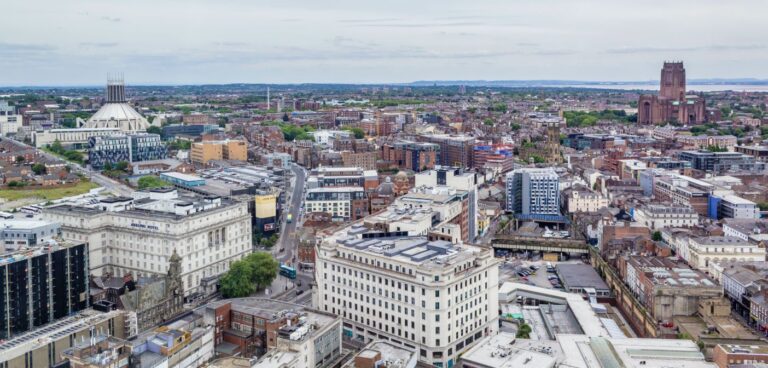Vivacity Labs, the London-based transport technology scale-up, has partnered with Liverpool City Region Combined Authority (LCRCA) and Liverpool John Moores University as part of its LCR Sustainable Green Travel Corridors project to incentivise cycling and walking across the city region.
The £16.7m project is part funded by the European Union European Regional Development Fund and part of a city region wide initiative led by the LCRCA. The project aims to deliver a series of walking and cycling upgrades to the region and introduce clearly defined direct cycle routes, which utilise off-road and segregated lanes to encourage an increased uptake in active travel.
To provide insight into the success of the project, Vivacity Labs’ sensors have been installed at six strategic locations across the area to monitor cycling and pedestrian activity. These sensors use artificial intelligence and machine learning to capture accurate, detailed and anonymous data 24/7 on transport modes, traffic flow and travel patterns,
To support this, Liverpool John Moores University has also developed digital assets such as a management information dashboard called Smart Green Dashboard, a mobile phone application called Smart Green Journey and other types of sensors to collect air quality and weather data.
The data is fed back to local authorities, who will use the dashboard to make strategic decisions on infrastructure development. Local residents can also use the mobile phone application to plan journeys and see resulting money and carbon savings.
Prof. Trung Thanh Nguyen, academic lead of the project at LJMU, said: “The Liverpool City Region is set to see a series of cycling and walking upgrades as a result of this project. We are delighted to be working alongside Vivacity Labs and other partners to harness the power of data and support local residents as they leverage technology in order to make safer and more sustainable choices.”
This initiative forms part of Liverpool city region’s aim to remove travel barriers for residents and helps to address socio-economic disparities. The benefits of increasing the uptake of cycling and walking in the city include improved community health because of increased physical activity, better air quality and reduced pollution, enhanced journey quality, and a reduction in greenhouse gasses, the project added.





